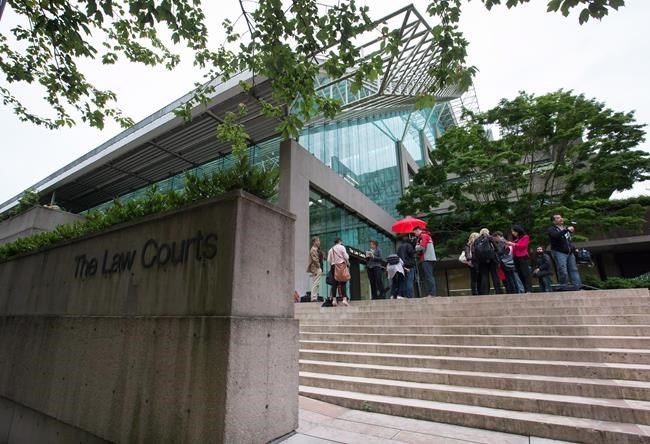VANCOUVER — A pathologist who performed an autopsy on the body of a 13-year-old girl found dead in a park defended his impartiality as an expert during cross-examination Wednesday in the murder trial of Ibrahim Ali.
Dr. Jason Morin's assertion came after Ali's defence lawyer suggested he was not an independent witness, has worked closely with police and he was being "directed by the Crown."
Morin denied that suggestion, telling the B.C. Supreme Court jury that his involvement with the Crown relates solely to his job and that all compensation he receives is for his time.
"I've been asked by the Crown to come and give my evidence as it pertains to my autopsy and what my opinions on that are," he said. "I would be asked that in any murder trial and I wouldn't be specifically working for the Crown in that respect."
Ali pleaded not guilty last month to first-degree murder.
The body of the girl, who cannot be identified under the terms of a publication ban, was found in Burnaby's Central Park in July 2017, just hours after her mother reported her missing.
Content warning: material that some may find disturbing follows.
Morin previously said his autopsy determined the teen died after being strangled, which had caused blood vessels in her eyes and face to burst.
He also told the jury during direct examination by the Crown last week that sperm was found in her body.
Defence lawyer Ben Lynskey questioned Morin on Tuesday about the nature of the girl's injuries and his findings about the cause of death being strangulation.
Morin said about 80 per cent of strangulation cases see bruising to a victim's neck, but there was no bruising on the girl's neck and no major injuries to her body.
He previously said he had identified a number of injuries, including bruising, scraping and tearing on the back of her head, as well as to her face, arms and legs.
On Wednesday, Lynskey pressed the pathologist about whether he tired to "help" the prosecution by suggesting other experts.
Morin said he "knows the limitations" of his expertise and if asked a question he couldn't answer, he would defer to someone who could.
"That is not me working for the Crown," Morin said.
Crown counsel Isobel Keeley said in an opening statement last month that the court would hear evidence showing the girl's killing was random, but DNA results would prove Ali sexually assaulted the girl.
She said the evidence would show the girl was passing through a neighbourhood park when she was dragged off a pathway into the forest by Ali, sexually assaulted and strangled.
The defence has not yet told the jury its theory of events.
This report by The Canadian Press was first published May 24, 2023.
Darryl Greer, The Canadian Press



